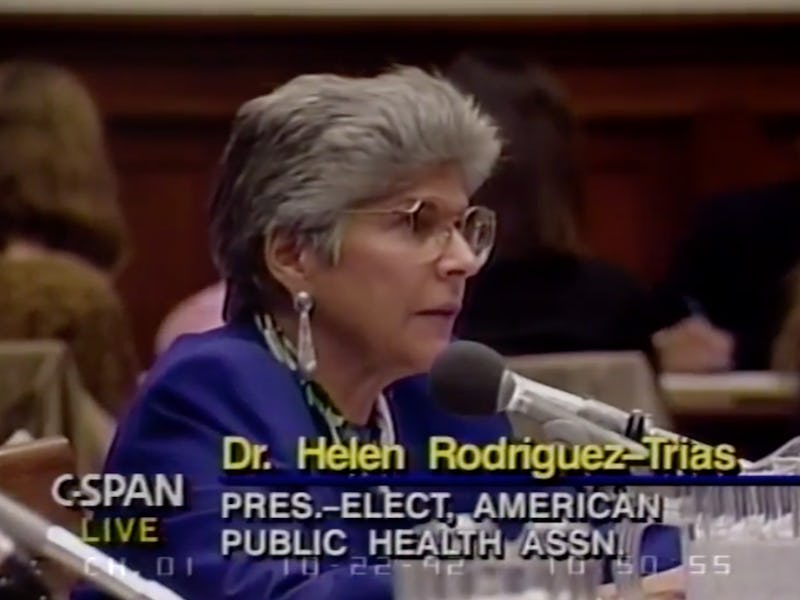Helen Rodriguez Trias: How She Fought Forced Sterilization Practices In Puerto Rico
A dark time in US history.

Google celebrated what would have been Helen Rodriguez Trias’ 89th birthday on Saturday with a Google Doodle. Of her vast amount of work fighting for the reproductive rights of women, Rodriguez Trias’ work against the forced sterilization of women is arguably her most important contribution during her lifetime.
Forced sterilization was a common practice in Puerto Rico, where Rodriguez Trias lived in her younger years and received her medical degree. It was here where she came across the realization that many women on the island were sterile due to a law passed on the island, which was supposed to address the unemployment concerns at the time, but instead was a masked attempt at population control.
Helen Rodríguez Trías Google Doodle
During the Spanish—American War in 1898, the US invaded Puerto Rico, which led Spain to cede the island to the US, making it a territory. Once under US control, poverty on the island began to grow due to sugar, cigarette, and other manufacturers began monopolizing the farms in Puerto Rico. Law 116 took effect in 1937 in Puerto Rico to address the poverty issue, but focused on sterilization of women, which was pushed by individuals and US lawmakers. While in effect, the women of the island were also test subjects for birth control drugs including “the pill.” It was repealed in 1960, but a report in 1976 showed 37 percent of women of childbearing age had been sterilized.
It was in 1974 when Rodriguez Trias helped form the Committee to End Sterilization Abuse with the goal to stop forced sterilization in both the US and abroad. During the ‘70s, due to a growing number of Mexican immigrants, there were forced sterilization campaigns to sterilize the women. Some hospitals in certain US cities would sterilize women without proper consent. The committee fought for better guidelines in local hospitals in New York City such as requiring written consent and a waiting period. The guidelines then became used in hospitals across the US in 1978.
Rodriguez Trias’ work for women’s reproductive rights continued into the ‘80s and ‘90s. For her diligent work throughout her career, Trias was awarded the Presidential Citizens Medal as an ‘’outstanding educator and dynamic leader in public health” in 2001.
Throughout her career, Rodriguez Trias spoke on the issues affecting both women and minorities in health and economic matters and gave some important quotes about those issues.